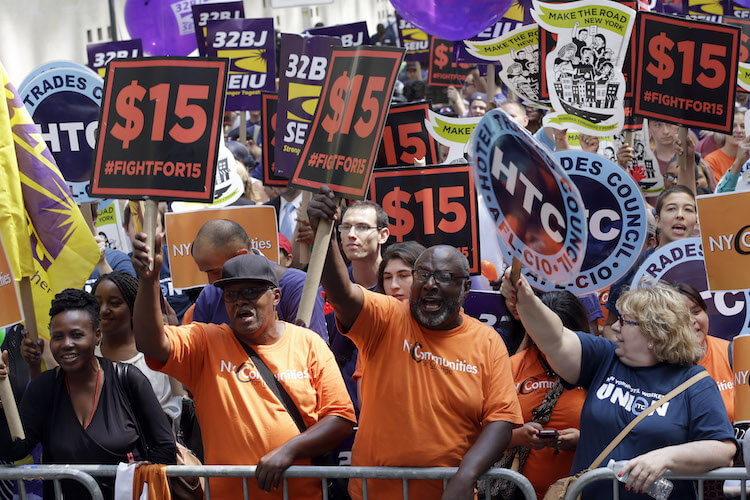Appreciating the new economics of the minimum wage

In the introduction to their book, “Myth and Measurement: The New Economics of the Minimum Wage,” authors David Card and Alan Krueger cite a poll of economists from the late 1940s in which 90 percent of respondents agreed that raising the minimum wage increased unemployment for minimum-wage workers. Last year, however, the Initiative on Global Markets Forum at the University of Chicago Booth School of Business asked a panel of prominent economists if employment for low-wage workers in the United States would “substantially” decline if the nation’s minimum wage were increased to $15 by 2020. Only 26 percent of the economists polled agreed with that statement; 38 percent of the economists were uncertain.
What shifted the opinion among economists on the impact of raising the minimum wage? Much of the shift can be attributed to Card and Krueger’s book and the economic research that followed.
“Myth and Measurement” was recently re-released as a 20th anniversary edition. While it’s common now to hear that raising the minimum wage won’t increase unemployment, the initial empirical work by Card and Krueger wasn’t immediately embraced by other economists. According to a recent profile of Card by Peter Walker of the International Monetary Fund, some economists staged panels at the annual meeting of the American Economic Association criticizing Card’s work on the minimum wage and other topics after he won the John Bates Clark medal in 1995.
And it makes sense why some economists would find Card and Krueger’s results so shocking and at times literally unbelievable. Simple supply and demand tells us that if a higher minimum wage pushes a wage rate above its equilibrium level, then the amount of labor demanded by firms will decline and the number of jobs will drop as a result. But that’s the simple theory of supply and demand in a perfectly competitive labor market. Card and Krueger’s analysis—along with further work by other economists—shows that the predictions of the perfectly competitive market don’t come true.
Of course, not everyone in the economics profession hasn’t come to the same conclusion as Card and Krueger. There are recent studies that find significant and sizable negative effects on employment. However, a look at studies on this question since 2000 finds the average effect on employment from raising the minimum wage is pretty small. That’s one reason why many economists see a role for imperfect competition in the labor market. Whether these results are applicable for bigger increases in the minimum wage, say to $15, remains an open question, reflected by the uncertainty of economists answering the IGM survey.
Still, this is a remarkable shift from where the economics profession was before the release of “Myth and Measurement.” There’s now a robust debate about not just the effect of a specific public policy, but the correct model for understanding the low-wage labor market. Appeals to supply-and-demand curves just won’t cut it anymore. We can all only wish something we write has that kind of impact.
